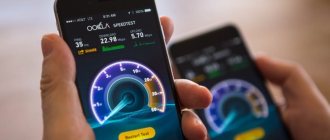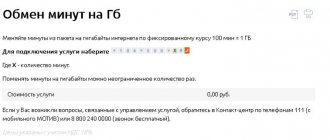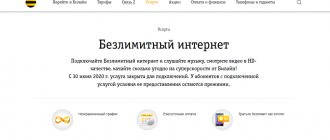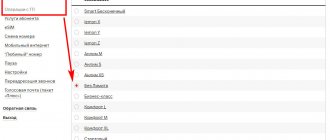According to TNS, out of 82 million RuNet users, 50 million access the network via smartphones and tablets. Moreover, in the 1st quarter of 2015, this “mobile” audience grew by 90% compared to last year.
Firstly, we are all in a hurry to monitor social networks in real time and post photos and videos there (whoever posted a lone picketer, a strangely cheap parmesan or a fresh litter of puppies near the metro earlier, did well).
Secondly, more and more people store photos, videos, presentations and other data in the “cloud” and download them from there when needed, instead of carrying flash drives in their pockets or worrying about the safety of their hard drive (at the same time wondering what they can take from there to clear the place). Not to mention the habit of always and everywhere being in touch and commenting on the lives of friends and acquaintances from all over the world without getting out of bed.
A reasonable question arises: how much Internet traffic do you need? 1.5 GB, 3 GB, which operators proudly announce in advertising leaflets - is it a lot or a little? We will try to calculate the “average temperature in the hospital” - the standard needs of an active Internet user on a smartphone.
Around the world per megabyte
One website page weighs from 50-60 KB for a page of text and up to 200-500 KB for a page with photographs and pictures (for example, any illustrated news is at least 200 KB). And a review with a video weighs several megabytes.
One listening or downloading of an audio clip is 3-5 MB, a movie - from 700 MB, watching streaming video (ivi.ru, for example) - plus 700 MB, online TV and Skype video chat - the same. Audio communication via Skype (and any other IP telephony) is about 128-130 KB per minute.
Social network pages weigh the same as regular websites, the caveat is that they are constantly updated, which also means traffic. By the way, it’s worth setting aside a certain number of megabytes for updating current applications and downloading new ones, checking mail in the background.
Mobile Internet traffic of smartphone users in 2014 grew by more than 90%, tablet users - by 220%.
- Cisco data
Add to this the periodic updating of the operating system - and we get a considerable amount of space that a smartphone needs simply to function normally.
So, the standard amount of traffic for a smartphone with full use (including WhatsApp, surfing, correspondence in instant messengers) is from 50 MB per day, or from 1.5 GB per month. To feel comfortable, it is advisable to choose packages of 4-6 GB. And the ideal solution, of course, would be unlimited.
One way or another, all major operators offer it, but each case has its own characteristics that should be taken into account so as not to waste your nerves and money. We looked at the cost of mobile traffic from leading operators in three cities - Moscow, St. Petersburg and Krasnodar.
How Internet connection speed depends on the user and provider
Quite often, when Internet speed drops, subscribers blame the provider. However, the cause of the problem is not always on the service provider's side.
Let's figure out what the provider is responsible for:
- channel congestion;
- the degree of quality of the equipment used;
- reliability and quality level of cable and wire products at various stages of connection;
- devices that the provider provides to subscribers.
But there are a number of other factors that no provider can influence:
- the degree of quality of the devices with which the subscriber works to gain access to the Internet in the village. In this case, we are talking about routers that subscribers buy separately, and not through a provider. The network card installed on the computer may not cope with high Internet speeds.
- The physical state of communications in the house. The provider cannot be responsible for the condition of the cable, socket and other equipment in the subscriber’s home.
- Operating characteristics of user devices – desktop computers, laptops, tablet computers and smartphones. Some gadget models are simply not capable of providing high speed Internet connections due to their technical features.
- The use of software by a user can consume a significant share of the Internet channel or slow down its operation; for example, many antivirus programs can slow down the connection.
- The presence of viruses on the user's computer. Malware can cause the Internet to disappear completely.
You should also take into account the fact that there are phenomena that cannot be influenced in any way by either the user or the service provider:
- Server load level.
- Interference that may occur from the operation of other equipment.
Yota
Completely unlimited Internet for a smartphone, without traffic or speed limits.
For Moscow, the minimum tariff is 440 rubles (this amount, in addition to unlimited Internet for 30 days, includes 100 minutes of calls to numbers of other operators and landline phones throughout Russia and unlimited calls within the Yota network), for St. Petersburg - 340 rubles, for Krasnodar 230 rubles.
The download speed does not fall below 3 MB per second, as calculated by the authors of the McRadar IT blog. Yota operates on a fairly powerful combined network of MegaFon and Scartel, and the operator’s IT infrastructure was initially created for unlimited offers.
Even the Internet from Yota, which is optimal in all respects, has two features. The first is that Internet distribution from Yota is an additional service: if you need to share the Internet, you can choose two hours or a day for this. Second, when using torrents on smartphones and tablets, the speed is reduced to 64 Kbps.
But in any case, none of the operators can offer real unlimited. By the way, you can also use Yota’s network access when traveling around Russia. The mobile operator does not have roaming, which means you can use its services when traveling around the country at the price of your home region without connecting additional options.
Not everything can be downloaded
There is a chance that your unlimited Internet cannot be used for downloading from peer-to-peer networks. That is, you cannot download torrents, otherwise the speed will be reduced.
So, MTS on the popular Tariffishche tariff will reduce your speed to 128 Kbps when trying to download from torrents, Beeline and Megafon will do the same.
In addition, for some unknown reason, viewing HD video may be charged separately. This is what Beeline does on the Unlim tariff.
Tele2
Package tariffs: 1.5 GB included in the 90-ruble “Black” package, 2.5 GB in the 190-ruble “Very Black” package and 4 GB in the “Blackest” package (290 rubles). This is the price for St. Petersburg, in Krasnodar - “Black” 500 MB for 50 rubles, “Very Black” 4 GB for 150 rubles, “Blackest” - 5 GB for 250 rubles and “Super Black” - 7 GB for 500 rubles. The larger the package, the lower the cost per megabyte, which is logical and humane.
Tele2 plans to launch in Moscow and the region in November-December of this year.
The “black” line is the operator’s most affordable for those who need a range of services for their smartphone. There are no speed limits within the tariffs; if you go beyond the provided gigabytes, the speed will be limited to 64 KB per second.
Many options are offered that allow you to get additional volume or time while remaining on the current tariff (for some, this is more convenient than racking your brains while choosing a new one). For example, 20 minutes of Internet for 15 rubles or 500 MB for 30 rubles. If you go online exclusively using Opera Mini, the price is 4 rubles per day (St. Petersburg and the region), but the volume of downloaded files should not exceed 15 MB (surfing when using the Opera Mini application is free).
The configuration of tariffs and options may vary from region to region, and not all options are available on every tariff. But there are, for example, options such as “Internet Package” (5 GB for 250 rubles per month), “Internet Portfolio” (15 GB and 350 rubles) or “Internet Suitcase” (30 GB and 450 rubles, all option prices for St. Petersburg and regions).
Difficulties using a VPN
Your mobile operator may have restrictions on the use of anonymizers. When using any VPN, as well as the Opera browser (where the VPN is built-in), you may lose your unlimited data.
Megafon does on the “Turn On” tariffs - this condition is separately stated in the tariff description in small print. When you try to enable VPN Unlimited, it will be disabled and a 15 GB package will be connected instead.
"Megaphone"
The basic Megafon Online tariff comes without a subscription fee, and the cost of one megabyte is 1.90 rubles. The modest tariff is suitable only for owners of old phones who do not have the opportunity to spend large amounts of traffic.
For those who need more than just the Internet, the “All Inclusive” line is suitable, from XS (0.5 GB of traffic for 199 rubles per month) to VIP (10 GB of traffic for 2,700 rubles). Once you've used up your included data allowance, speeds will traditionally drop to 64KB per second.
If you only need the Internet, you can save money by connecting to one of the “Internet” Internet options from S to XL, or from 3 GB for 350 rubles per month and up to unlimited (at night, during the day, maximum traffic per month is 30 GB) Internet for 1290 rubles per month.
If you use up the package, you'll have to limit yourself to 64 KB per second. Unless, of course, you spend money on it - it’s 70 MB for 19 rubles per day, or 1 GB for 150 rubles per month. For traffic monsters - 5 GB for 400 rubles per month. Prices for St. Petersburg and Krasnodar can be found in the table.
"Beeline"
Beeline offers Internet surfers tariff plans from the “Everything” family, as well as options from the “Highway” family.
The “All for...” tariff family offers subscribers from 1 to 10 GB of Internet traffic as part of the package. Once the main package is exhausted, the network access speed will be limited to 64 Kbps.
“Everyone” - tariffs for those who, in addition to mobile Internet, need calls and SMS. For fans of the Internet and mobile television, the “Highway” option is suitable. For Muscovites it will cost 400-1200 rubles (volume from 4 to 20 GB per month), for St. Petersburg residents - 295-475 rubles (from 7 to 30 GB). 30 GB of “Highway with night unlimited” will cost residents of the northern capital 695 rubles. In Krasnodar, 4 GB costs 200 rubles, and 30 GB costs 690 rubles.
By the way, when connecting to the option of 4 GB and above, Muscovites also receive mobile television as a gift.
There is also a younger brother in this family, which includes only 1 GB of traffic for 7 rubles per day (or 200 per month - your choice). This is for Moscow. In St. Petersburg, the minimum is 1.5 GB for 180 rubles per month, in Krasnodar - 2 GB for 4.5 rubles per day. It can only be used in your home region.
Beeline has it - however, it is not available to owners of “Everything” tariffs (but, apparently, they don’t really need it). For 19 rubles per day you will get 100 MB at maximum speed, 500 MB will cost 29 rubles. For St. Petersburg and Krasnodar, prices are traditionally more humane.
Why do you need traffic?
Its main purpose is to carry out the movement of information. A program or person sends a request to the Network and receives a corresponding response from the system. This could be updating the program, accessing content, receiving news materials, sending messages in the messenger and much more.
Local traffic is used to exchange data with another device. Using an FTP server, you can transfer information from Android to PC via Wi-Fi. In this case, a cable connection is not required.
MTS
MTS pleases with its consistency, offering two tariff packages for accessing the Internet for several years. For Moscow and the region - the BIT package with a traffic limit of 75 MB per day for 200 rubles per month.
For the entire country - “SuperBIT”. This is 3 GB for 350 rubles per month. After the packet traffic ends, additional traffic packets are automatically connected to the subscriber (30 rubles for 300 MB). It is possible to connect 15 such packages per month, and if they are exhausted, the speed will automatically drop to 64 KB per second. Only the “Turbo button” will save you from slowing down: it will add from 100 MB to 5 GB of traffic.
As usual, there is a nuance: these packages are not available to those with a Smart line tariff. As for Smart, it’s 5 GB for 900 rubles per month, and Smart Top is 10 GB for 1,500 rubles (for St. Petersburg and Krasnodar - 1,000 rubles). If suddenly it’s not enough, you can get 500 MB for 50 rubles. It can be connected 15 times a month. If this is not enough, press the “Turbo button”. As with “SuperBIT”, additional megabytes of the Internet will be purchased automatically, unless you refuse this option.
For owners of MTS-Connect tariff plans, a rather convenient thing is available: for 50 rubles per day you get 500 MB, and the fee will be charged to you upon using the service.
So you won’t have to give money to the operator if you’re walking through forests or museums instead of Facebook pages. However, if you exceed the quota, the Internet stops working and you need to activate the “Turbo button”. For constant use, this option is, of course, too expensive, and the modest amount of traffic will cover only the minimal needs for Internet communication and surfing.
How much does it cost to go online?
| Mobile Internet for smartphone | If it wasn't enough | |
| YOTA |
The price includes, in addition to unlimited Internet, 100 minutes of calls to numbers of other operators in Russia and unlimited calls within the Yota network | The only unlimited Internet on the market does not expire for 30 days - as long as the package is valid |
| Tele2 |
| 500 additional MB for 30 rubles. 4 rubles per day when accessing the Internet using Opera Mini (the size of downloaded files is no more than 15 MB). |
| Megaphone |
|
|
| Beeline |
|
|
| MTS | “SuperBIT” tariff: 350 rubles for 3 GB for all of Russia. |
|
Internet communication formats
It should be noted that mobile Internet is not something new and inaccessible both throughout the world and in our country. It’s just that before it was slow, weak and quite expensive: from GPRS to 2G. The latter, by the way, has become quite acceptable for viewing pages in a browser, mail and working in some online programs. Unfortunately, he was not capable of anything more - uploading videos or downloading music.
Today everything has changed. We have the most advanced technology to date - 4G Internet. Given the wide territorial coverage of mobile providers, such a network is available almost anywhere, even in areas outside the city. Thanks to this, anyone can enjoy all the benefits that 4G coverage offers.











